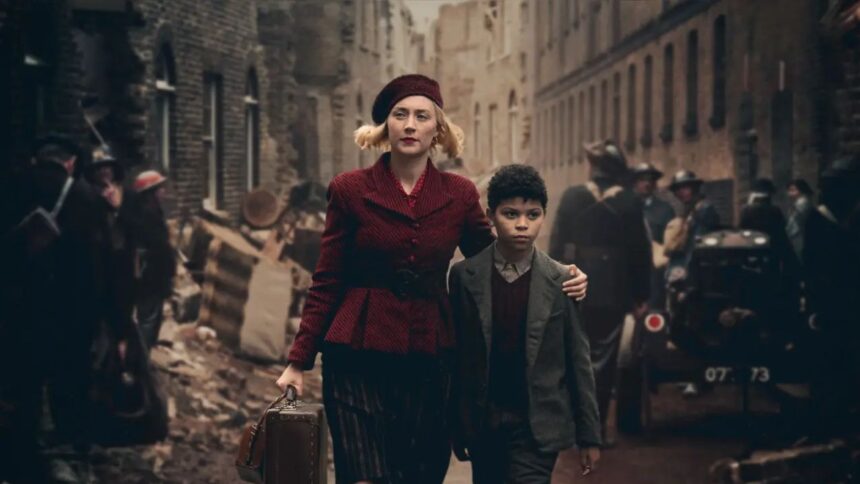Overview
Blitz, directed by Academy Award-winner Steve McQueen, is a World War II survival drama that offers an intimate exploration of London during the blitzkrieg. The film, available on Apple TV+, showcases McQueen’s mastery in combining epic storytelling with personal narratives, presenting a poignant tale about resilience, race, and community. This marks McQueen’s return to feature filmmaking after 12 Years a Slave and his recent focus on streaming projects.
Plot Summary
Set during WWII, Blitz follows the journey of nine-year-old George (Elliot Heffernan), a biracial child sent to the countryside for safety by his mother Rita (played by Saoirse Ronan). The film begins with an evocative scene of chaos in bomb-ridden London, setting the tone for a narrative steeped in adversity and emotional turmoil. Rita, a struggling mother, faces a heart-wrenching decision to send George away. However, George rebels against this separation, leaping off the evacuation train to navigate a war-torn city alone. His episodic journey introduces him to various characters, including a compassionate Nigerian soldier named Ife, whose kindness leaves a lasting impact.
Themes and Execution
The film explores multiple themes, such as the racial and class divides of wartime Britain, through a Dickensian lens. McQueen skillfully portrays a fractured society while maintaining an undercurrent of hope and humanity. George’s racial identity complicates his survival, amplifying the tension in his journey. However, the heightened reality of the film prevents it from delving into overly dark territories, maintaining a fable-like quality.
The narrative is bolstered by strong performances, particularly from Ronan and Heffernan. Stephen Graham’s menacing thief character adds layers to the story, highlighting the class struggles of the era. McQueen’s approach—both critical and compassionate—creates a nuanced portrayal of wartime resilience.
Cinematography and Score
Visually, Blitz captures the gritty yet surreal landscape of WWII London. McQueen’s direction, paired with atmospheric cinematography, immerses viewers in the era’s chaos and beauty. The score by Hans Zimmer enhances the emotional weight of the narrative, providing a haunting backdrop to the characters’ struggles.
Critique
While Blitz excels in emotional depth and historical commentary, its quasi-fable tone occasionally undercuts the urgency of its subject matter. Unlike McQueen’s previous works, the film feels more accessible but slightly less immediate. Despite this, Blitz avoids melodrama and succeeds as a thoughtful exploration of identity, survival, and humanity.
Conclusion
Blitz is a compelling addition to Steve McQueen’s filmography, offering a unique perspective on WWII through the lens of personal struggle and societal critique. It is a must-watch for fans of historical dramas that prioritize character-driven storytelling over spectacle.





